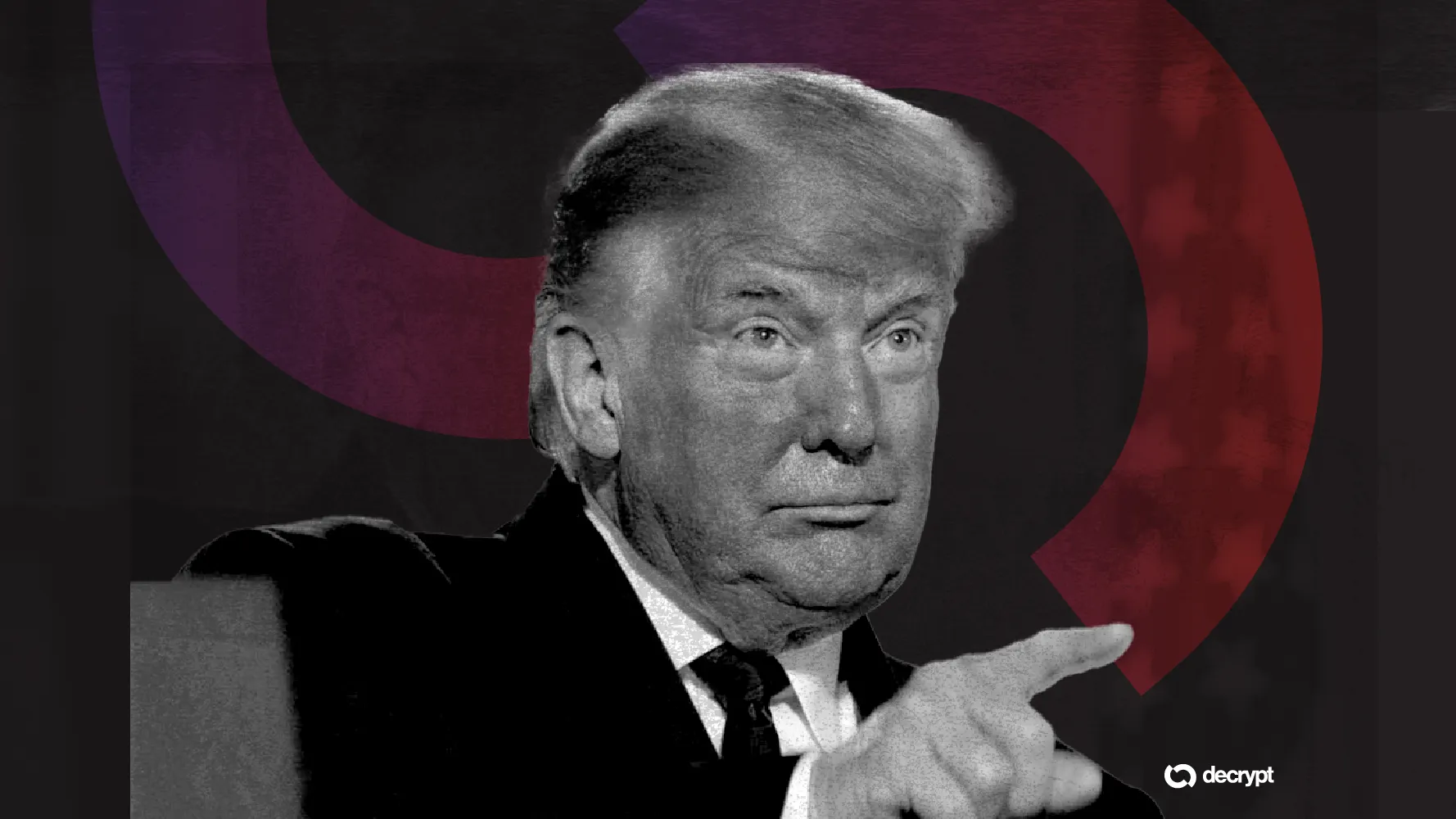In brief
- President Trump was asked by Decrypt whether he would consider divesting from personal crypto projects to help crypto legislation get passed.
- He made no commitments on the matter, saying that he was involved in crypto before deciding to run for president again.
- Trump has faced criticism over potential conflicts of interest related to his various crypto business endeavors.
President Donald Trump dodged a question about his willingness to divest from his personal crypto ventures Friday, maintaining that he was interested in crypto before deciding to run again for president—and arguing that he built a crypto industry in America that China would have seized upon if not for his leadership.
Asked by Decrypt whether he would be open to “pulling away from” his “personal crypto ventures” while in office, in the interest of getting crypto legislation passed speedily in coming months, the president deflected. Trump asserted that without him, the American crypto industry as a whole would not currently be flourishing.
“I don’t care about… I have my kids, and they invest in different things. They do believe in it,” Trump said. “But I’m president, and what I did do there is build an industry that’s very important. And you know, if we didn’t have it, China would.”
In recent weeks, Democrats have threatened to withdraw support for key crypto market structure legislation, arguing that the president’s numerous and lucrative digital assets ventures are a deal-breaker and an unacceptable conflict of interest.
🚨NEW: Decrypt White House correspondent @s_lutz95 asks President Trump if he would consider divesting from his crypto ventures.
Trump would not commit, but said he believes his involvement has helped "build an industry."
If the U.S. didn't have crypto, "China would," the… pic.twitter.com/i89GNYrQPg
— Decrypt (@DecryptMedia) June 27, 2025
Trump did not appear much bothered by such accusations on Friday, arguing that he was interested in crypto and Bitcoin before he decided to run for re-election in 2022.
“I got involved before I decided to run,” he said. “I was in Bitcoin then, not knowing if I was going to do it a third time.”
Trump first became publicly involved in crypto when he released an NFT collection in December 2022—technically, a month after he announced his intention to run in the 2024 presidential election.
In the last year—and particularly, since retaking the White House—the Trump family’s involvement in the crypto sector has sharply accelerated. The family’s Ethereum decentralized finance platform, World Liberty Financial, sold $550 million worth of its native WLFI token earlier this year, netting an estimated $390 million payday for the president and his associates.
World Liberty has since launched its own dollar-pegged stablecoin, USD1. Trump and his family members are entitled to earn interest on the reserves backing USD1, according to World Liberty’s website.
Days before his inauguration in January, Trump also launched his own Solana meme coin, TRUMP, which at its peak days later boasted a fully diluted valuation of over $45 billion. That figure has since plummeted to just shy of $9 billion at writing. Trump and his business partners are entitled to 80% of all TRUMP tokens. The tokens are set to be steadily unlocked over the next three years.
Those sizable investments have come under increasing scrutiny, particularly as Congress works to pass two major pieces of crypto-related legislation pertaining to stablecoins and market structure. Democrats have increasingly made “Trump’s crypto corruption,” as they have dubbed it, the cornerstone of their objections to the bills passing.
But even Republicans, and top crypto policy leaders, have begrudgingly acknowledged that the optics of the Trump family’s personal digital assets ventures have done them no favors.
Rep. French Hill (R-AR), the chair of the powerful House Financial Services Committee, which is leading the charge on multiple pieces of crypto legislation, said earlier this year that Trump’s crypto dealings have made his work “more complicated.”
Editor's note: This story was updated after publication with additional details.
Edited by Andrew Hayward

